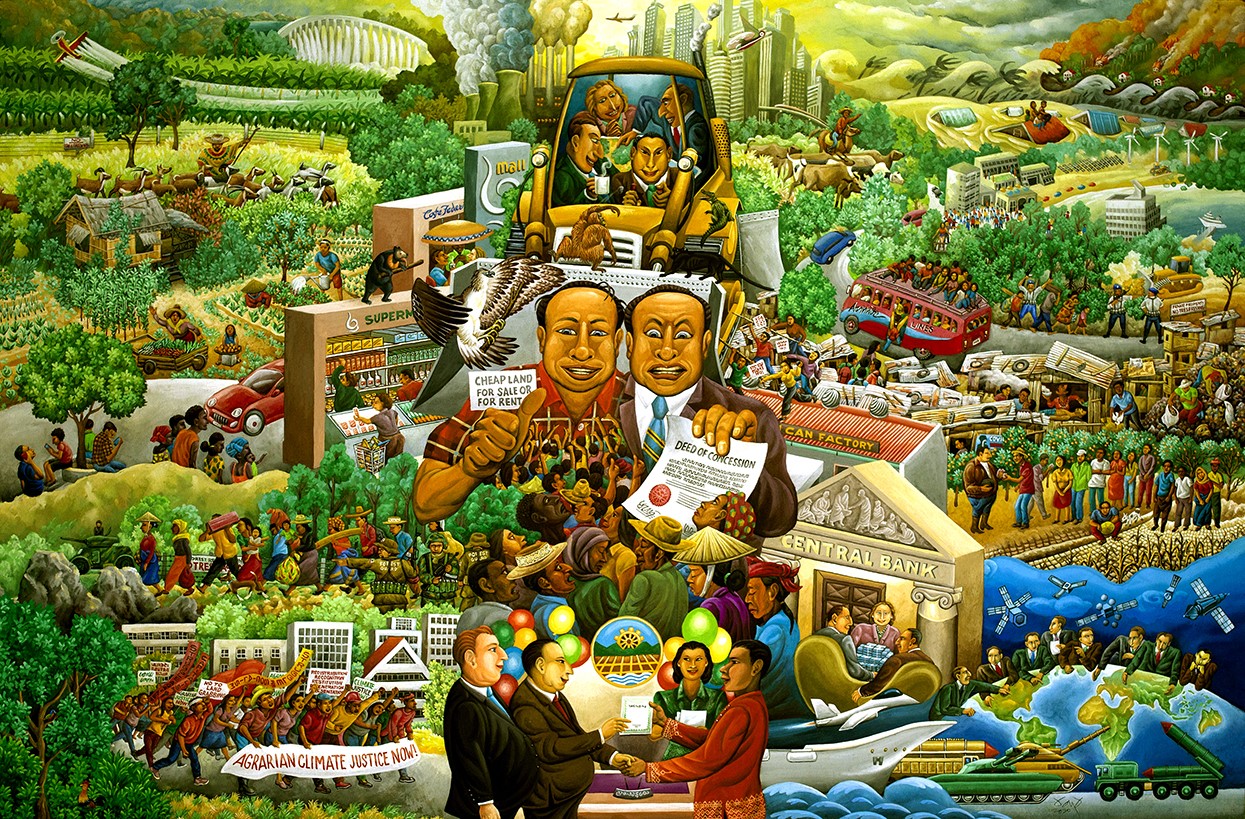Land grabbing ten years on: a Call for Applications for small research grants

More than a decade ago, the Land Deals Politics Initiative (LDPI) was launched as a loose network of scholars and activists concerned about the rise of land, water and green grabs across the world and the consequences for rural livelihoods and agrarian relations. A massive wave of investment in land, resulting in expropriation and displacement had emerged following the financial, food and energy crises of 2008-09. We wanted to understand what was going on and how best to respond.
Between 2009 – 2019, LDPI organised a series of events to analyse the social, economic, political and environmental dynamics of large-scale land deals and their implications for policy and social movements. LDPI funded significant research and contributed to a considerable body of published scholarly research on land deals, all of which shaped policy discussions and informed numerous initiatives such as the FAO’s Voluntary Guidelines.
The global debate around land deals has diminished in the last several years, but important research and political questions remain. What happened to the hundreds of land grabs documented by researchers, non-governmental organisations, activist groups, news media, and aid agencies? What new configurations of land, labour and capital have emerged since? How has the rise of authoritarian, state-led populism and politics re-shaped the tensions between ‘foreignisation’ and extraction? This call invites applications for small grants to support research and writing around old and new themes related to land grabbing, aiming to understand the contemporary dynamics of land and resource ‘grabbing’.
Twenty-five grants of $3000 each are available to researchers from/based in the ‘Global South’ who have undertaken original empirical research and wish to write this up. Applications should include a short abstract (300 words), a profile of the applicant(s) (300 words), two names of references, in English (We will also accept some applications in Spanish and French). These should be submitted as one document to landdealpoliticsinitiative@gmail.com by 31 May 2023.
Successful applicants will be informed by 30 June 2023 and full papers will be due by 15 January 2024. Full papers can be co-authored with others including with researchers who are not from the Global South. The aim is to publish the papers online in the LDPI Working Paper series and share them at a major international conference to be held in Colombia in March 2024, which will include researchers, activists and policymakers from across the world. We hopefully can facilitate attendance of successful grant applicants at the event.
In September 2023, there will be a separate Call for Papers for presentation at the conference that will be an open call and not limited to authors from/based in the Global South. Also, we will encourage all conference participants (including the grantees) to develop their papers for journal publication at a later stage.
The proposed themes for this initiative are as follows: What happened to failed large-scale land grabs? Multiple, invisible domestic land grabs. The implications for labour. The role of science. Processes of financialisation. Green energy and climate change. Green grabbing, neoliberal conservation and market-based instruments. Growth as extra-territorial development. Land grabs and environmental change. The national political context of land grabbing. Violence, from the everyday to the spectacular. Resistance and mobilisation. Policy and political change. Methodology. Towards theorisation.
International Organizing Team
Andrea Sosa (CONICET, Argentina), Rama Dieng (U of Edinburgh), Arnim Scheidel (UAB-ICTA Barcelona), Jacobo Grajales (U of Lille), Tor Benjaminsen (Norwegian University of Life Sciences), Jampel Dell’Angelo (VU, Amsterdam), COHD/China Agricultural University (Ye Jingzhong, Wang Chunyu and Liu Juan), Diana Ojeda (U de los Andes, Bogota), Barry Gills (U of Helsinki), Transnational Institute or TNI (Katie Sandwell, Sylvia Kay and Jennifer Franco), Lorenzo Cotula (IIED), Diana Aguiar (Federal University of Bahia, Brazil), Marc Edelman (CUNY), Ruth Hall (PLAAS, Cape Town), Ben White (ISS, The Hague), Wendy Wolford (Cornell), Ian Scoones (IDS Sussex) and Jun Borras (ISS, The Hague).
Colombia Organizing Team
U. Nacional (Francisco Gutierrez Sanín), U. Rosario (Rocío del Pilar Peña Huertas), U. los Andes (Angela Serrano), U. Javeriana (Julio Arias), U. Externado (Flavio Bladimir Rodríguez Muñoz) and CINEP (Sergio Coronado) and the Colombian team of RRUSHES-5 (Itayosara Rojas and Lorenza Arango, ISS PhD researchers, Colombia-based).
Co-sponsors (initial list; to be updated)
Journal of Peasant Studies
World Development
Antipode
Globalizations
Análisis político
The complete call is available here.